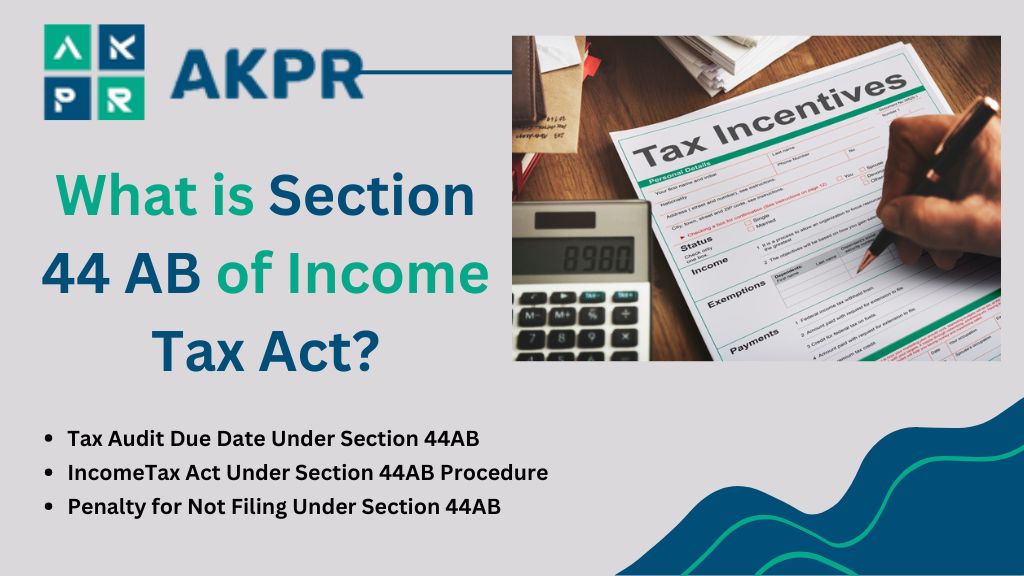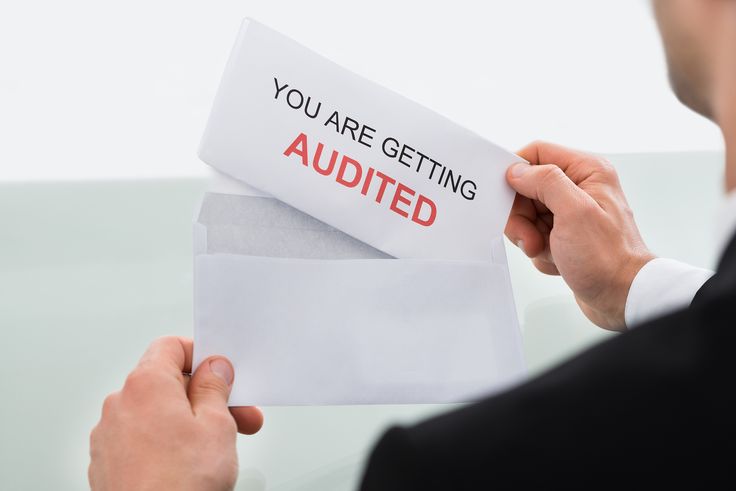Income Tax Audit under Section 44AB: Criteria, Processes, & Due Dates
If you’re a business owner or a professional in India, you’ve possibly come across the term Section 44 AB of the Income Tax Act. It might seem difficult, but understanding this section is important for keeping your tax legal. In simple terms, Section 44 AB requires that particular taxpayers must undergo a tax audit so that their financial records are accurate.

What is Section 44 AB of the Income Tax Act?
Section 44AB of the Income Tax Act requires some taxpayers to undergo a tax audit. This audit guarantees that firms and professionals follow tax requirements and have accurate financial records.
Tax Audit Due Date Under Section 44AB
- The tax audit report must be filed on or before September 30th of the assessment year.
- Any delay in submission attracts penalties.
- If the taxpayer is also subject to a transfer pricing audit, the due date for submitting is November 30th of the assessment year.
Who is Required to Get a Tax Audit Under Section 44 AB?
You may be looking for your business requires a tax audit under Section 44 AB. So, here’s what you should know:
| Category of person | Applicable Criteria: Tax Audit Threshold Income Tax |
| Business (Excluding persons who have opted for presumptive taxation scheme under Section 44AD) | Total sales, turnover, or gross receipts in business for the year exceed Rs. 1 crore. (Rs. 2 Cr in the case of section 44AD(1). |
| Business | The threshold limit for a person carrying on business is increased to Rs. 10 Crores if,Receipts in cash do not exceed 5% of all receipts.Payment in cash does not exceed 5% of all payment |
| Professionals | If gross receipts exceed ₹50 lakhs in a financial year. |
| Presumptive Taxation Scheme Cases | If a taxpayer has opted for a presumptive taxation scheme (Section 44AE, 44BB, or 44BBB) but claims lower profits than the prescribed limit. |
Get Started: Need help with your Section 44 AB compliance? Contact us today for expert guidance on income tax audits and filing your ITR correctly!

Penalty for Not Filing a Tax Audit Report
If a taxpayer who is required to request a tax audit does not have the accounts examined, a penalty may be imposed under Section 271B of the Income Tax Act. Failure to complete the tax audit carries a penalty of 0.5% of turnover or gross revenues, up to a maximum of Rs. 1,50,000. While failure to keep up with audit standards usually results in a penalty, there are some exceptions for acceptable grounds. The judicial bodies and courts have accepted the following as acceptable causes:
- Physical disability or death of the partner responsible for taking the accounts.
- Natural Disasters or Calamities
- Retirement of the tax auditor, causing a delay in finishing the audit.
- Longer labor difficulties, such as protests or shutdowns.
- Loss of accounting records caused by events beyond the taxpayer’s control.
Need Expert Help? Reach Out to AKPR Today!
At AKPR, we know that dealing with statutory compliance can feel overwhelming. The ever-changing tax laws, labor regulations, and corporate governance requirements can be challenging for any business—whether you’re a startup finding your footing, an SME looking to scale, or a large corporation managing complex legal frameworks.
That’s where we step in! As a trusted CA firm in India, we simplify compliance and accounting services, ensuring your business stays legally compliant while you focus on growth and success.
Our services include:
✅ Tax Compliance: GST, Income Tax, TDS
✅ Labor Law Compliance: PF, ESI, Minimum Wages
✅ Corporate Governance: Filing Annual Returns, Legal Documentation
✅ Statutory Compliance Audits & More
Avoid penalties, streamline operations, and safeguard your business with AKPR’s expert guidance. Let’s simplify compliance together! Contact us today and take the first step toward hassle-free business operations.
Looking for CA Firm in India?
CA Firm in Mumbai | CA Firm in Parel | CA Firm in Andheri | CA Firm in Bandra | CA Firm in Nariman Point | CA Firm in Ghatkopar | CA Firm in Dadar | CA Firm in Bandra Kurla Complex | CA Firm in Juhu | CA Firm in Jogeshwari | CA Firm in Goregaon | CA Firm in Borivali | CA Firm in Thane
FAQs
1. What is the threshold for tax audit under Section 44 AB of the Income Tax Act?
Businesses with turnover exceeding ₹1 crore and professionals with receipts over ₹50 lakh must get a tax audit under Section 44 AB.
2. How can I follow with Section 44AB for small businesses?
If your turnover is below ₹1 crore, you may not need a tax audit. However, always consult a CA to ensure compliance with tax laws.
3. What documents do I need for a tax audit under Section 44 AB?
You need to maintain and present your books of accounts, invoices, receipts, and financial statements to your CA for the audit.
Pingback: What Services Provide an Income Tax Consultant in India? | AKPR